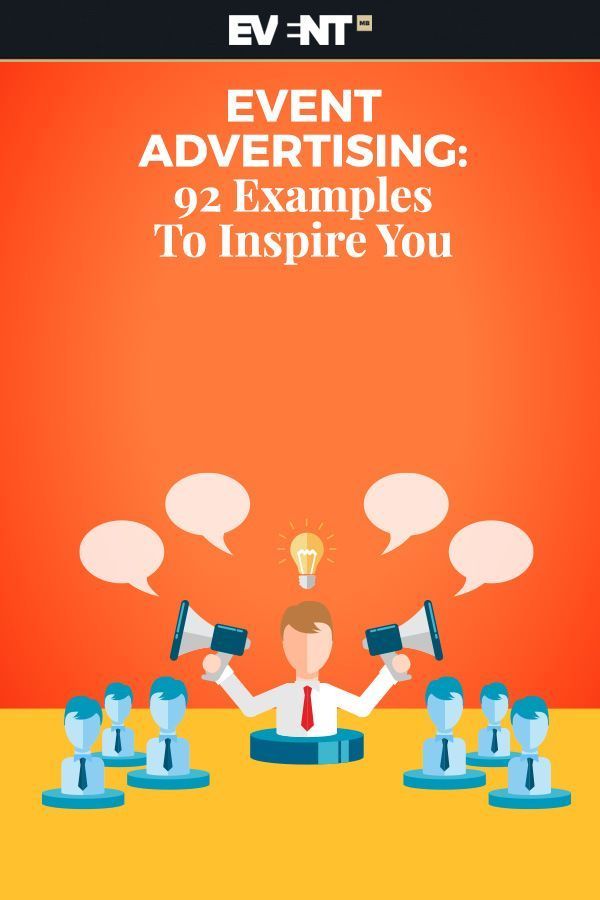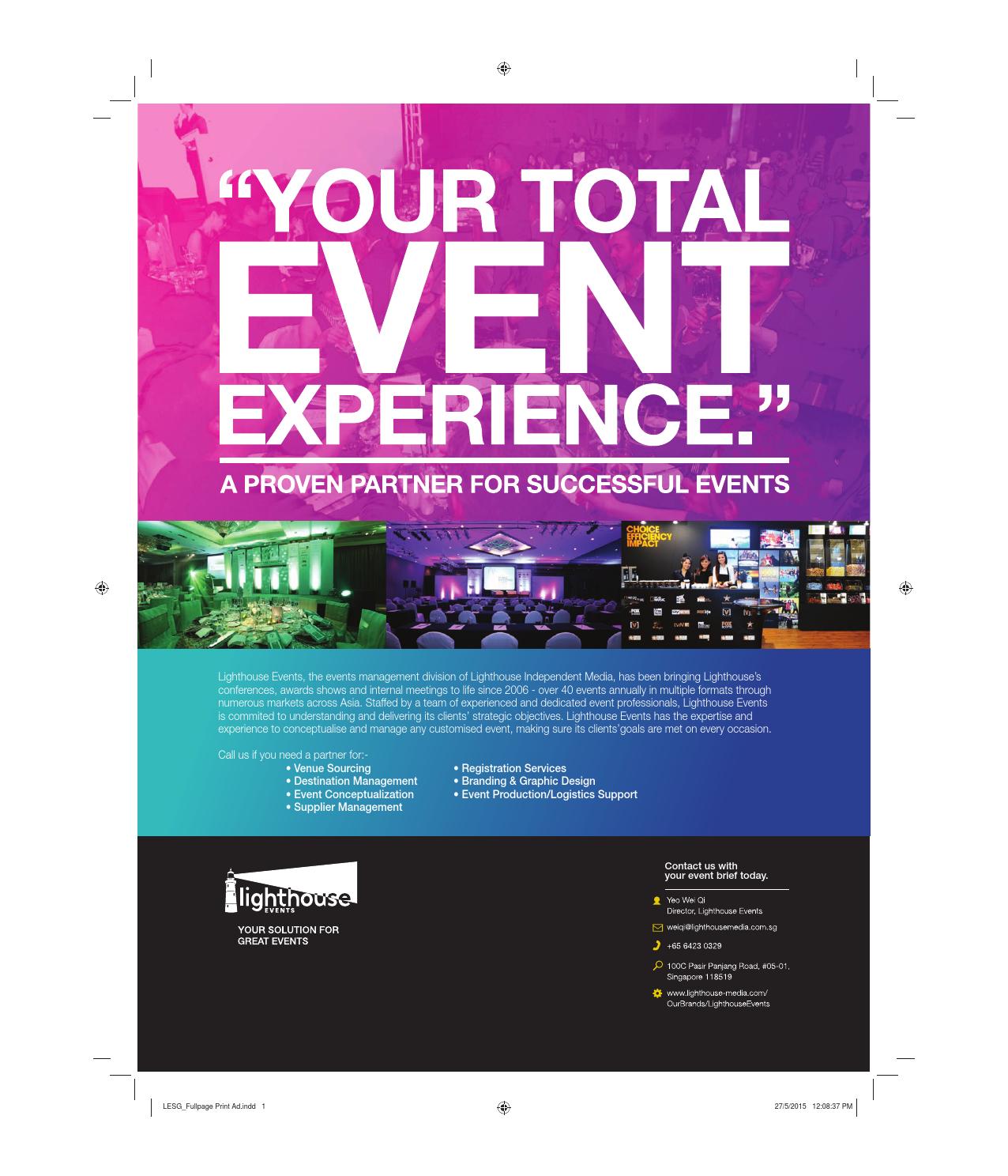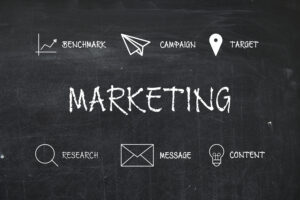Event Advertising
Event advertising is a crucial aspect of event planning, and can significantly impact the success of an event. With English being the most commonly used language for business and communication worldwide, it is important to be able to effectively advertise events in English.
In this blog, we will explore various tips and strategies for advertising events in English, including creating catchy headlines, using social media effectively, and targeting your audience with relevant content. Whether you are organizing a conference, festival or networking event – this blog will provide valuable insights on how to promote your event in English and attract attendees from all over the world.

1. Understanding Event Advertising
As someone interested in event marketing, it’s important to have a strong understanding of event advertising. This means knowing the different types of event advertising activities, budgeting for event promotion, and leveraging social media for effective event marketing. But it’s not just about the tactics. Understanding the purpose and benefits of event advertising is crucial for success.
First and foremost, event advertising is about fulfilling demand for your event. It’s about getting your target audience excited and informed about what you have to offer. Utilizing event discovery sites and placing signs outside your business are just a couple of examples of how you can maximize your reach and get more eyes on your event.
But it’s not just about getting the word out. Event advertising can also help you develop and own your brand’s purpose and values. By communicating the right message through your event advertising, you can create a better experience for attendees, build brand loyalty, and ultimately make an impact on your bottom line.
Of course, none of this can happen without a solid budget and a well-managed marketing campaign. By following a step-by-step guide and implementing immediate event advertising strategies, you can optimize your advertising investment and achieve your desired outcome.
Finally, don’t underestimate the power of social media, and specifically LinkedIn, for event promotion. By using these channels effectively, you can reach more qualified leads, build relationships with potential attendees, and ultimately drive more ticket sales.
In summary, understanding event advertising may seem like a no-brainer, but it’s important to approach it strategically and with purpose. By utilizing different types of event advertising activities, budgeting effectively, and leveraging social media, you can maximize your impact and achieve success with your event marketing campaigns.
2. Benefits of Utilizing Event Discovery Sites
When it comes to event advertising, one of the most effective ways to gain exposure is by utilizing event discovery sites. Not only are many of these sites free to use, but they also offer the added benefit of increased visibility among a targeted audience.
By posting your event on these sites, you open yourself up to a whole new audience who may not have otherwise discovered your event. Plus, many of these sites offer advanced search capabilities, allowing users to filter events by date, location, and category, making it easier for them to find events that are relevant to their interests.
But the benefits of using event discovery sites don’t stop there. By leveraging these platforms, you’re also creating a sense of community around your event. The more people who attend, the greater the buzz and excitement generated, ultimately leading to an even more successful event.
Of course, it’s important to remember that event discovery sites shouldn’t be your only marketing strategy. Combining it with other tactics, such as social media, email marketing, and SEO, will give your event the best chance of success.
When it comes to advertising your event, every little bit helps. Utilizing event discovery sites is a simple and effective way to get your event in front of more people, generate excitement, and ultimately, drive attendance. So, take advantage of these platforms and start promoting your event today!
3. Importance of Channel Maximization for Event Advertising
Now that you have a clear understanding of event advertising and have learned about the benefits of utilizing event discovery sites and placing signs outside your business, it’s time to focus on maximizing your channels for event advertising. This step is crucial in making your event promotion successful.
In today’s world, advertising channels are endless, ranging from social media platforms to email marketing and traditional advertising methods such as signage and flyers. It’s important to identify which channels will reach your target audience best and use them effectively.
Channel maximization is all about using various advertising channels to their full potential. Start with identifying your target audience and researching where they spend their time. Is it on social media or do they prefer receiving emails? Knowing this information will help you allocate your resources to the most effective channels.
Another key aspect of channel maximization is consistency. Once you’ve identified which channels to use, it’s important to maintain a consistent presence across all of them. Your brand message and event details should be communicated consistently across all channels, making it easier for your target audience to recognize and associate with your event.
In addition, don’t forget to leverage word-of-mouth advertising. Encourage attendees to share their experience on social media and leave reviews about the event. This can be a powerful tool for attracting new attendees to future events.
By maximizing your advertising channels, you can increase your event’s visibility and reach a wider audience. Remember to identify your target audience, select the most effective channels, maintain consistency, and leverage word-of-mouth marketing. By doing so, you’ll attract attendees and help make your event a success.
4. Advantages of Placing Signs Outside Your Business
If you own a brick and mortar small business, you know that your sign is crucial for attracting customers to your location. Placing signs outside your establishment carries advantages that can greatly contribute to the success of your business.
Firstly, signage outside your business acts as a guidepost for potential customers who may be wandering or driving around the area. It’s like an invitation that tells them where to go, making it easier for them to find your business.
Secondly, signs outside your business can increase brand awareness. A well-designed and strategically placed sign can be seen by hundreds or even thousands of people each day, which can significantly improve your business’s visibility and help you stand out in the market.
Thirdly, signs outside your business suggest customer satisfaction. Customers who see positive reviews or feedback on your sign are more likely to trust your business and give it a try. By presenting yourself this way, you’re letting people know that you’re proud of what you do and believe in it enough to display it proudly.
Finally, it’s cost-effective. Compared to pay-per-impression advertising, placing signs outside your business is a one-time cost that can help you garner attention and business for years to come. So if you’re looking for a reliable and cost-effective way to grab customers’ attention, don’t hesitate to invest in some quality signs.
As you can see, putting signs outside your business is a small yet powerful investment that can reap immense benefits. Follow these tips for an effective event marketing strategy and get ready to grow your business!

5. Budgeting for Event Promotion
As you plan your upcoming event, one crucial aspect that deserves your full attention is budgeting for event promotion. Your promotional budget serves as the lifeline of your event, as it clearly spells out how much you have to spend on advertising and publicity. Here are some tips on how to budget for event promotion:
Firstly, identify the different types of marketing activities that you need for your event, such as print ads, social media ads, flyers, billboards, and email marketing, among others. Once you have a list of marketing activities, estimate the costs of each activity and create an itemized budget.
Secondly, consider leveraging the power of event discovery sites, which are popular online platforms that help event organizers promote their events to audiences across the world. Some popular event discovery sites, such as Eventbrite and Meetup, offer valuable promotional services that can boost your event attendance.
Thirdly, maximize your advertising channels by using a mix of traditional and digital advertising methods, such as radio ads, TV commercials, and social media promotion. This strategy can help you reach a wider audience and gain more exposure for your event.
Fourthly, consider placing signs outside your business as part of your advertising strategy. This can attract foot traffic and help to create awareness about your event within the local community.
Lastly, be realistic about your budget and allocate funds accordingly. Avoid overestimating your budget or overspending on one activity at the expense of others. Creating a realistic budget will help you to maximize your resources and still achieve your desired results.
In conclusion, budgeting for event promotion is a crucial factor in the success of your event. By following the above tips, you can create a budget that will help you maximize your marketing efforts and create buzz around your event. Remember, a well-promoted event has a higher chance of attracting more attendees and generating more revenue.
6. Step-by-Step Guide for Effective Event Marketing
As an event planner, you know that effective marketing is key to a successful event. That’s why we’ve put together this step-by-step guide to help you market your event with ease.
Step 1: Identify your target audience for the event. Knowing who your audience is will help you tailor your marketing messages and ensure that you’re reaching the right people.
Step 2: Determine your budget for marketing. Whether your budget is big or small, there are plenty of ways to promote your event without breaking the bank.
Step 3: Develop a promotion timeline. Use an event management tool to create a solid promotion timeline that starts before tickets go on sale and continues through the day of the event.
Step 4: Use event discovery sites. Websites like Eventbrite and Meetup can help you reach a wider audience and promote your event to people who may not know about it.
Step 5: Place signs outside your business. If you have a physical location, placing signs outside your business can help attract local attendees who may be interested in your event.
Step 6: Leverage social media. Social media is a powerful tool for event marketing. Create a hashtag for your event and use it in all of your social media posts to help build buzz.
Step 7: Consider paid advertising. If you have some budget to spare, consider using paid advertising on platforms like Facebook and Instagram to reach a larger audience.
Step 8: Reach out to local media. Reach out to local newspapers, radio stations, and TV stations to see if they would be interested in covering your event.
Step 9: Utilize LinkedIn. LinkedIn can be a great tool for reaching out to professionals in your industry who may be interested in attending your event.
Step 10: Monitor your results. Keep track of your marketing efforts and adjust your strategy as needed based on what is and isn’t working.
By following these simple steps, you can create an effective marketing strategy for your event and attract the right attendees to make your event a huge success.
7. 10 Strategies for Immediate Event Advertising
As an event planner or marketer, you know that time is always of the essence when it comes to promoting an event. You need to ensure that your event gets the attention it deserves by casting the widest possible net and reaching out to as many people as possible. Here are 10 strategies that can help you with immediate event advertising.
- Promote your event in your email signature: You can use your email signature as a subtle way to let everyone you communicate with know about your event. Include a banner, logo, or link that will make recipients curious and encourage them to attend your event.
- Utilize social media: Social media is a powerful tool for event promotion, especially if you have a strong following. Create posts that showcase the best aspects of your event, and use hashtags and mentions to spread the word.
- Leverage event discovery sites: Find sites that feature events in your area and create an event listing. This is a great way to reach a wider audience that may not know about your event yet.
- Use retargeting ads: Retargeting ads are a great way to reach people who have shown interest in your event or similar events in the past. This can help you stay top-of-mind with potential attendees and encourage them to buy tickets.
- Offer early bird tickets: Give potential attendees an incentive to buy tickets early by offering a discount or other exclusive benefits, such as early entry or VIP status.
- Use ambassadors: Reach out to influential people in your industry or local community and offer them free entry or other benefits in exchange for promoting your event on social media.
- Place signs outside your business: If you have a physical location, use it to your advantage by placing signs or banners outside that advertise your event. This can help you attract local attendees who may not have heard about your event otherwise.
- Partner with local businesses: Find local businesses that complement your event and offer them a discount or partnership opportunity in exchange for promoting your event to their customers.
- Create engaging video content: Use video to showcase the best aspects of your event, such as highlights from previous events or a sneak peek of what attendees can expect.
- Start promoting early: The earlier you start promoting your event, the more time you have to build buzz and excitement. Don’t wait until the last minute – plan ahead and get started as soon as possible.
By utilizing these 10 immediate event advertising strategies, you can increase your event attendance and reach new potential attendees. With the right promotional tactics and a clear strategy, your event can make a lasting impression and become a huge success.
8. Leveraging Social Media for Event Advertising
As discussed in the previous sections, event advertising is crucial for gaining attention and driving attendance to your event. One effective way to do so is by leveraging social media for event advertising.
Social media platforms such as Facebook, Twitter, and Instagram offer an incredible opportunity to reach a vast audience, including potential attendees. By creating event pages and promoting them through targeted social media advertising, you can increase brand awareness and generate leads.
But it’s not just about creating a page and hoping people will find it. You need to actively engage with your followers and target audience by posting relevant content, including teasers, event pictures, and behind-the-scenes footage. Social media is a powerful tool to build buzz and excitement around your event, encouraging attendees to share their experiences and generate user-generated content.
Moreover, using social media can also help you gain valuable insights into your target audience’s behavior and preferences. By analyzing the data generated by social media activity, you can fine-tune your marketing strategy and optimize your efforts to reach the right people.
To maximize the impact of social media in event advertising, you need to integrate it with other marketing channels. Use social media to promote email marketing campaigns, webinars, or blog posts related to your event. You can also use social media to facilitate registration and ticket sales.
In short, social media is an incredibly powerful and cost-effective tool to promote your event. By leveraging its potential and integrating it into your marketing strategy, you can drive attendance, engage with your target audience, and build brand awareness. Remember that social media is not a one-time affair, but an ongoing effort to create a sustainable relationship with your audience.

9. LinkedIn as an Effective Tool for Event Promotion
As mentioned in the previous section, LinkedIn is a platform that every company should be utilizing for event promotion. Not only is it free, but it’s also a social networking site that’s specifically designed for professionals. This means that with LinkedIn, you have access to a vast network of potential attendees who are already interested in your industry or niche.
One of the many advantages of using LinkedIn for event promotion is that it’s an effective way to leverage word-of-mouth marketing. By sharing your event with your LinkedIn connections, you’re tapping into an extensive network of individuals who can, in turn, share the event with their own connections. This helps to spread the word about your event more efficiently than traditional advertising methods ever could.
Another benefit of LinkedIn is that it offers excellent audience targeting capabilities. You can use LinkedIn’s advanced search functionality to search for professionals who have the right job titles or who fit your target demographic. This means that you can tailor your event advertising to the right people, increasing the chances of converting them into attendees.
Furthermore, LinkedIn lets you join professional groups related to your industry or niche, which offers another avenue of promotion. By actively participating in groups and sharing valuable content, you can establish yourself as an authority in your field. This builds trust with potential attendees, making them more likely to attend your event.
So, if you’re looking for an effective tool to promote your event, LinkedIn should be at the top of your list. It’s a free and powerful social networking platform that offers excellent audience targeting and word-of-mouth marketing capabilities. By utilizing LinkedIn, you’ll be tapping into a vast network of professionals who are already interested in your industry, making it an incredibly effective tool for event promotion.
10. Different Types of Event Advertising Activities.
When it comes to event advertising, there are various methods and activities that you can utilize. These include both traditional and digital approaches. Here are ten types of event advertising activities that you can consider for your next event.
- Social Media Ads
Social media platforms like Facebook, Twitter, and Instagram can help you reach a large audience. You can use social media ads to promote your upcoming event to targeted audiences based on location, interests, and demographics. - Email Marketing
Email marketing is an effective way to communicate with your audience. You can use it to promote your event, send event updates, and follow up with attendees after the event. - Event Listing Sites
Event listing sites like Eventbrite, Meetup, and Eventful can help you promote your event to a wider audience. You can create a listing for your event and include all the necessary details such as date, time, location, and ticket information. - Flyers and Posters
Print advertising such as flyers and posters can help you reach a local audience. You can distribute them in your community, including advertising them outdoors and outside of popular stores. - Sponsorship
Partnering with a sponsor can help you reach a wider audience and add credibility to your event. It can help cover the cost of advertising, as well as provide additional resources and support. - Press Release
Draft a press release that showcases your event and send it to both local and national media outlets. If the media picks it up, it can lead to additional exposure for your event. - Influencer Marketing
Partnering with influencers in your industry or community can help you reach their audiences. They can share information about your event to their followers, which can increase awareness and ticket sales. - Content Marketing
Creating valuable content that is relevant to your audience can help position your event as a must-attend. You can share your content on your website and social media profiles, encouraging your followers to share it with their network. - Retargeting Ads
Targeting individuals who have previously visited your event’s website or showed interest can increase the chances of converting them into attendees. You can use retargeting ads that follow them online wherever they go. - Partnership Collaborations
Collaborating with businesses or organizations in your industry can help you reach their audiences. Alternatively, you can find opportunities for promotions, discounts or giveaways through partnerships.
When planning your event advertising, it’s essential to consider a mix of activities that will help you reach your target audience. By combining both traditional and digital methods, you can ensure that your event is visible to as many people as possible.
Please visit our main website for more information and more services we offer: www.wis-consultancy.com



